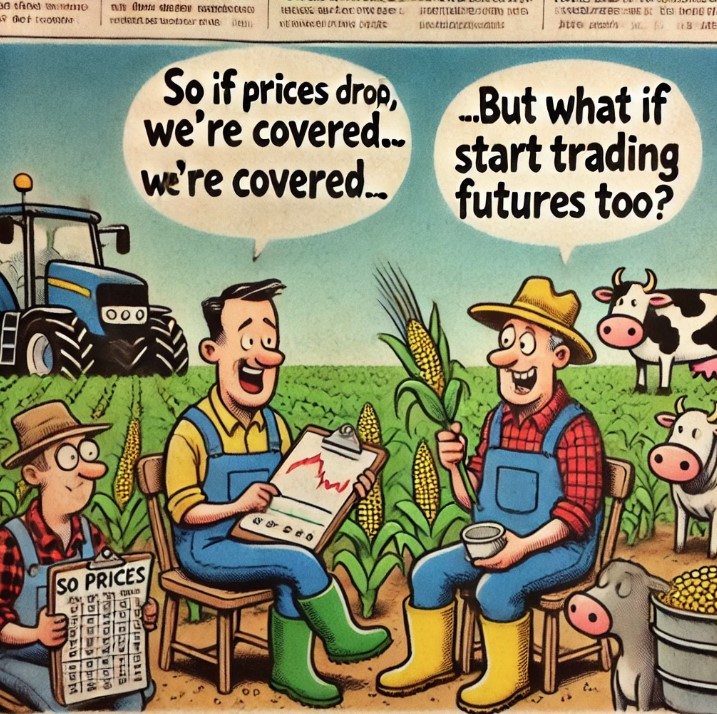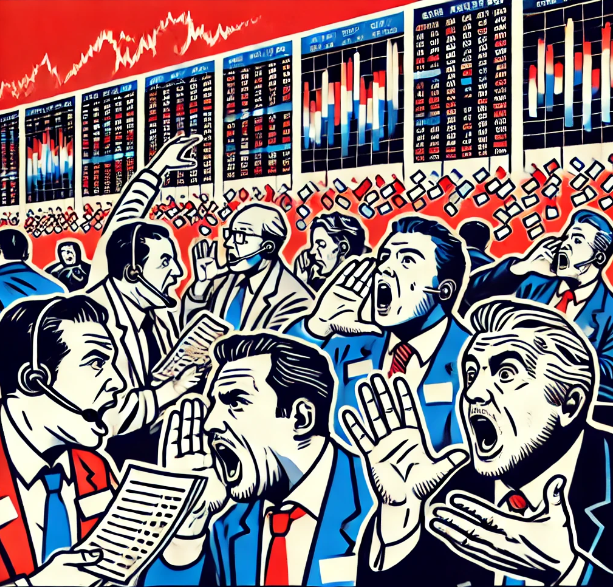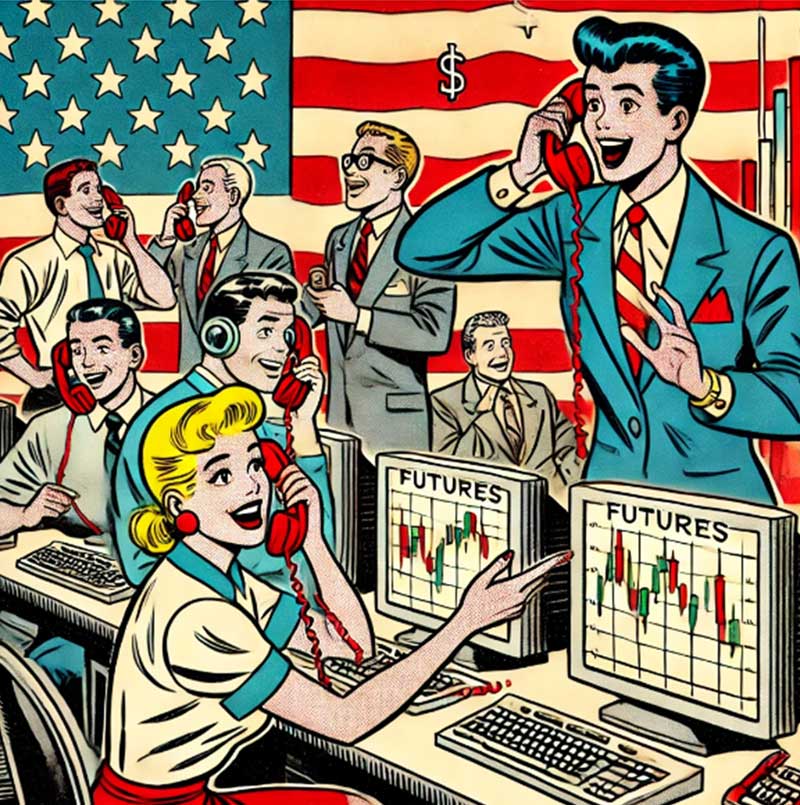The modern agricultural landscape is subject to numerous risks that can impact farmers’ incomes and overall financial stability. From unpredictable weather conditions to volatile market prices, farmers face challenges that can disrupt the flow of their businesses and lead to significant financial losses. One of the key tools that farmers have at their disposal to mitigate these risks is hedging through futures contracts. Here, futures brokers play an essential role in helping farmers navigate the complexities of the futures market, protecting them against market fluctuations and price risks. This comprehensive discussion will delve into the importance of futures brokers in assisting farmers, their essential knowledge and techniques, and how these brokers help farmers hedge their grains and other products.
Futures Contracts and Their Importance for Farmers
Before discussing the role of futures brokers, it’s important to understand how futures contracts work. A futures contract is a standardized agreement to buy or sell a specific quantity of a commodity at a predetermined price and future date. Futures contracts are primarily traded on commodity exchanges like the Chicago Board of Trade (CBOT) or the New York Mercantile Exchange (NYMEX).
For farmers, these contracts serve as a risk management tool that allows them to lock in prices for their produce in advance. In an environment where the prices of agricultural products such as corn, wheat, soybeans, and livestock can be highly volatile due to factors like weather, supply chain disruptions, and market demand shifts, the ability to lock in prices becomes a powerful mechanism to manage risk. This is where futures brokers come into play.
The Role of Futures Brokers in Farmer Hedging
Futures brokers act as intermediaries between farmers and the futures exchanges where these contracts are traded. These professionals offer a range of services that are vital to helping farmers effectively hedge their products. Their primary role is to facilitate the trading of futures contracts by executing buy and sell orders on behalf of the farmer. However, their responsibilities go well beyond just placing trades. A competent futures broker helps farmers make informed decisions, educates them on the intricacies of the market, and provides them with the necessary tools to manage their risk effectively.
Key Services Provided by Futures Brokers to Farmers:
- Market Analysis and Advisory Services: Futures brokers provide farmers with up-to-date market analysis and insights into price trends, supply-demand dynamics, and global economic factors that could influence commodity prices. This information is crucial for farmers when deciding when to enter or exit the futures market. By providing data-driven recommendations, futures brokers help farmers make more informed decisions about when to hedge their crops or livestock.
- Risk Management and Hedging Strategies: One of the most critical services that futures brokers offer is developing and implementing hedging strategies. Farmers typically use futures contracts to hedge their risk by locking in a price for their crops or livestock before they are harvested or brought to market. A skilled broker will assess the farmer’s individual risk exposure and create a tailored strategy that minimizes price volatility. This often involves a combination of short hedges (for selling products) and long hedges (for buying inputs) to ensure that farmers are protected against adverse price movements.
- Execution of Trades: Futures brokers are responsible for executing trades on behalf of farmers. Since timing can be crucial in the volatile commodity markets, brokers need to be adept at executing trades quickly and accurately to lock in favorable prices. The broker ensures that the trade complies with exchange rules and that the farmer’s position is correctly managed throughout the lifecycle of the contract.
- Monitoring Market Conditions: Agricultural commodity markets can be unpredictable, and price movements may not always follow historical patterns. Therefore, futures brokers continuously monitor market conditions and keep farmers informed of any changes that could impact their positions. This proactive approach helps farmers adjust their strategies as needed, whether it’s by modifying the terms of their hedges or by taking advantage of new opportunities.
- Education and Training: Futures brokers often provide education and training to farmers, especially those who are new to futures trading. Understanding the nuances of futures contracts, margin requirements, and the potential risks involved in the market can be complex. Good brokers take the time to educate their clients, ensuring they fully understand the tools and strategies being used to protect their business.
Knowledge and Techniques Essential for a Good Futures Broker
For a futures broker to effectively serve farmers, they need to possess a specific set of skills, knowledge, and techniques. These qualities not only ensure that the broker can help farmers hedge their risks but also that they provide the highest level of service and guidance.
In-depth Knowledge of the Agricultural Industry:
A good futures broker working with farmers must have a thorough understanding of the agricultural industry. This includes knowledge of seasonal planting and harvesting cycles, the various factors that influence crop yields (such as weather patterns, pest infestations, and technological innovations), and the global demand for agricultural products. Brokers who understand the challenges that farmers face can better tailor their advice and trading strategies to the unique needs of the farming industry.
Expertise in Commodity Futures Markets:
A strong grasp of commodity markets is essential for any futures broker. This includes not only an understanding of how futures contracts are structured but also an awareness of the factors that drive commodity prices, such as geopolitical events, currency fluctuations, trade policies, and technological advancements. Futures brokers need to be familiar with market trends and know how to interpret data to make sound trading recommendations.
Risk Assessment and Mitigation Techniques:
A crucial part of hedging is risk assessment. Futures brokers must be adept at identifying the various risks farmers face (e.g., price risk, yield risk, input cost risk) and know how to develop strategies to mitigate those risks. One common technique is the use of “hedging ratios” that ensure the appropriate number of futures contracts are used to cover the farmer’s exposure, minimizing the potential for loss without over-hedging.
Margin Requirements and Financial Management:
When trading futures contracts, farmers must meet certain margin requirements to hold their positions. A good futures broker helps farmers understand these requirements and ensures that they have sufficient capital to meet margin calls without straining their cash flow. The broker must also educate farmers on managing leverage responsibly, as the highly leveraged nature of futures trading can amplify both gains and losses.
Regulatory Knowledge:
Futures brokers need to be well-versed in the regulatory environment governing commodity futures trading. This includes compliance with rules set by organizations like the Commodity Futures Trading Commission (CFTC) in the United States. Brokers should be able to guide farmers on their legal obligations, such as reporting requirements, and ensure that all trading activities comply with applicable regulations.
Practical Examples of Farmer Hedging Strategies
Farmers typically use two main types of hedging strategies when working with futures brokers: short hedging and long hedging. Each strategy serves a different purpose, depending on whether the farmer is looking to protect the price of the crops they are selling or the inputs they are buying.
Short Hedge (Selling Futures Contracts)
A short hedge is used by farmers to protect against falling prices for the crops they are selling. For instance, a corn farmer might plant their crop in the spring, but they won’t harvest and sell it until the fall. If they fear that corn prices will decline between planting and harvest, they can enter into a short hedge by selling corn futures contracts now, locking in a specific price for their crop. When they eventually harvest and sell their corn in the physical market, any loss from lower spot prices can be offset by gains in their futures position.
Long Hedge (Buying Futures Contracts)
A long hedge is used when farmers need to protect against rising prices for inputs like feed, seed, or fertilizer. Livestock farmers, for example, often use long hedges to lock in the price of feed corn. If they anticipate that feed prices will rise before they need to purchase it, they can buy futures contracts to secure a price. When they eventually buy the feed in the physical market, the higher cost will be offset by the gains in their futures position.
The Importance of Selecting the Right Futures Broker
Not all futures brokers are created equal. For farmers, choosing the right broker is essential to ensuring their financial security and the long-term success of their business. Here are several key considerations farmers should keep in mind when selecting a futures broker:
- Experience with Agricultural Clients: Farmers should seek brokers who have extensive experience working with agricultural clients. These brokers will have a better understanding of the unique challenges faced by farmers and will be more adept at developing tailored hedging strategies.
- Clear Communication and Transparency: A good broker communicates clearly and provides transparency regarding fees, commissions, and other costs associated with futures trading. Farmers should look for brokers who are willing to explain the details of their trades and provide regular updates on their positions.
- Access to Advanced Trading Tools: Modern futures brokers offer access to sophisticated trading platforms and risk management tools. Farmers should ensure that their broker provides the technology and resources needed to make informed decisions and manage their positions effectively.
- Strong Reputation and Regulatory Compliance: Farmers should choose brokers with a solid reputation for integrity and reliability. They should also verify that the broker is fully licensed and compliant with relevant regulations. Working with a reputable, regulated broker helps ensure that farmers are protected against fraudulent activities or mishandling of their funds.
In an industry as unpredictable as agriculture, farmers face numerous risks that can impact their livelihood. The ability to hedge through futures contracts is a powerful tool that allows them to mitigate these risks and protect their income. However, successfully navigating the futures market requires the expertise and guidance of a skilled futures broker. These professionals provide essential services such as market analysis, risk assessment, and trade execution, all while educating farmers on the intricacies of the market.
To be effective, futures brokers must possess in-depth knowledge of both the agricultural industry and commodity markets, as well as strong risk management and regulatory skills. By working closely with a competent futures broker, farmers can better hedge their produce, secure favorable prices, and ensure the long-term success of their business, despite the inherent volatility of the agricultural markets.
To open an account with E-Futures.com, please click here.
Ready to start trading futures? Call US 1(800)454-9572 – Int’l (310)859-9572 email info@cannontrading.com and speak to one of our experienced, Series-3 licensed futures brokers and start your futures trading journey with E-Futures.com today.
Disclaimer – Trading Futures, Options on Futures, and retail off-exchange foreign currency transactions involves substantial risk of loss and is not suitable for all investors. Past performance is not indicative of future results. You should carefully consider whether trading is suitable for you in light of your circumstances, knowledge, and financial resources. You may lose all or more of your initial investment. Opinions, market data, and recommendations are subject to change at any time.
Important: Trading commodity futures and options involves a substantial risk of loss. The recommendations contained in this writing are of opinion only and do not guarantee any profits. This writing is for educational purposes. Past performances are not necessarily indicative of future results.
**This article has been generated with the help of AI Technology. It has been modified from the original draft for accuracy and compliance.
***@cannontrading on all socials.








